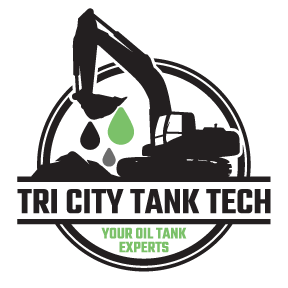The city of Delta is comprised of 3 thriving communities: Delta, Ladner, and Tsawwassen. Bordering the United States, the city of Surrey and Boundary bay, it has a diverse blend people, amenities, and attractions. While living in Delta undeniably has its liberties, there are a couple factors that could definitely been seen as unfavorable, from the unrelenting rain that is a common occurrence in the Lower Mainland, to the topic that has brought you to here… “Oil tanks”.
In Delta, natural gas was introduced approximately in the late 1950’s throughout the 1960’s, ending an era of various alternative fuel sources, such as: wood, coal and residential underground storage tanks. While oil tanks were still being used and installed, the volume in which they were used dramatically decreased as natural gas rapidly became the desired choice of new homebuilders. As with all technology, when the newest convenience arrives, the oldest quickly becomes obsolete.
In the oil tank removal industry, there are many governing bodies and it is important to adhere to all requirements to ensure that the job is done safely, efficiently and effectively. It is important that all documentation is collected, compiled and supplied to the appropriate departments to confirm that when the job is complete there will be no further issues.
In Delta, the Fire Wardens require the property owner to get an environmental consultant if there is suspect contamination present; however, we highly recommend that an environmental consultant collects, submits and provides a final environmental report for each project. Although at this time it is not a requirement, it is important to understand that with many different parties to appease, the safest, most detailed method is to hire an independent environmental consultant to oversee the environmental aspect of your project. There are many direct governing bodies involved in oil tank removal regulations; however, it is important to also note the indirect parties that may require different standards to be met. The indirect parties can vary but can include: Lenders, Insurance companies, or even future purchasers of your property. This is a critical part of the process, as the main reason for removal of an oil tank is to determine if there has been any leakage and if the contamination levels exceed the Ministry of Environments allowable limits. When you employ an independent environmental consultant you, will get an environmental report at the end of your job. The environmental report should meet or exceed the requirements of the direct or indirect parties and once your job is completed you can consider it done. The permit price for an oil tank removal in Delta is $200. As part of our hassle free approach, we will apply and pick up the appropriate permits. Additionally, we will synchronize the fire warden’s inspection and the other subcontractors involved, to ensure that the things go smoothly and no stages in the oil tank removal process are overlooked.
Feel free to contact us now 604.725.1515 or info@oiltank.ca for more information about oil tank searches, oil tank removal, or contamination removal in Delta. If you are unsure if you have an oil tank, please select the book a scan button on the bottom of this screen and we will be delighted to assist you in the location of your tank, or to provide an oil tank certificate/ report if no tank is found. If you have an oil tank on your property and need a fast and affordable solution, please select the book a quote option on the bottom of this screen and we will be happy to provide you with a quick, competitive, and transparent quote.
